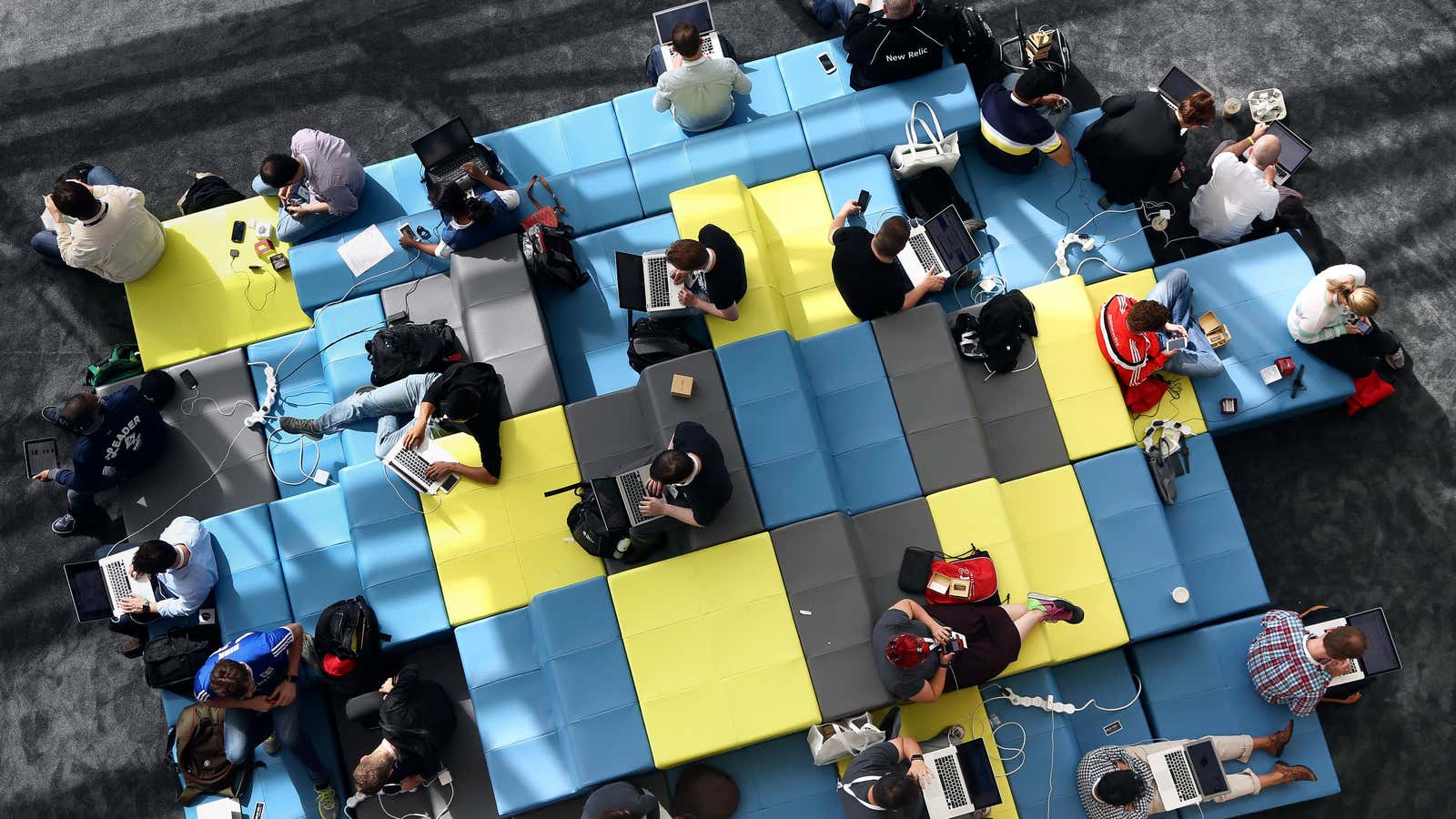This post has been updated.
The US Federal Communications Commission is taking a stand against companies that illegally block personal WiFi hotspots at convention centers and hotels while charging high fees for internet access.
Today (Aug. 18), the FCC announced that it fined a company called Smart City $750,000 for blocking consumer WiFi hotspots at various US convention centers where it was providing WiFi service.
The FCC’s release explains how Smart City’s scheme worked:
In providing service at convention centers, Smart City charged exhibitors and visitors a fee of $80 to access the company’s Wi-Fi services for a single day. The FCC’s investigation revealed that, if exhibitors or visitors to the convention centers did not pay this $80 fee, Smart City would automatically block users from accessing the Internet when they instead attempted to use their personal cellular data plans to establish mobile Wi-Fi networks—or “hotspots”—to connect their Wi-Fi-enabled devices to the Internet.
“It is unacceptable for any company to charge consumers exorbitant fees to access the Internet while at the same time blocking them from using their own personal WiFi hotspots to access the Internet,” Travis LeBlanc, chief of the FCC’s enforcement bureau, said in a statement. “All companies who seek to use technologies that block FCC-approved WiFi connections are on notice that such practices are patently unlawful.”
The FCC had previously fined Mariott $600,000 in 2014 for blocking consumer WiFi in one of its properties, a hotel and convention center. It has also warned against the sale of radio-signal “jammers,” which are used to block cellular and WiFi signals in small spaces.
Update: Smart City has issued a statement, attributed to its president, Mark Haley, which claims the company did not realize its actions violated FCC rules. “This activity resulted in significantly less than one percent (1%) of all devices being deauthenticated and these same technologies are widely used by major convention centers across the globe as well as many federal agencies.”




